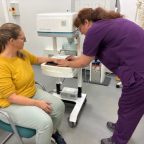
Understanding and Overcoming Medical Anxiety
Fear of healthcare professionals, also known as iatrophobia or medical anxiety, is a common and often debilitating condition that affects many individuals. This fear can stem from various sources and can lead to significant consequences for an individual's health and well-being. Understanding the root causes, manifestations and strategies to overcome this fear is essential for both patients and healthcare providers.
Root Causes of Medical Anxiety
People will fear healthcare professionals for a number of different reasons:
- Past Negative Experiences: Traumatic or unpleasant experiences with medical treatments, misdiagnoses or poor communication can lead to a lasting fear of doctors, nurses and other healthcare providers.
- Fear of Pain or Discomfort: Many medical procedures involve a certain degree of pain or discomfort, which can trigger anxiety. The anticipation of pain can be more distressing than the pain itself.
- Fear of the Unknown: Medical environments, procedures and terminologies can be intimidating for those who do not understand them. The uncertainty surrounding diagnoses and treatments can exacerbate anxiety.
- Fear of Bad News: The possibility of receiving a serious diagnosis or unfavourable health news can cause significant fear. This fear can prevent people getting the care they need or leaving minor problems to develop into large ones.
- Generalised Anxiety: Some individuals may have an overarching anxiety disorder that makes any interaction with healthcare professionals particularly stressful.
Manifestations of Medical Anxiety
Medical anxiety can manifest in various ways, including:
- Avoidance Behaviour: Individuals may avoid scheduling or attending medical appointments, leading to neglected health issues.
- Physical Symptoms: Anxiety has symptoms such as sweating, rapid heartbeat, nausea and dizziness during medical visits.
- Emotional Distress: Intense feelings of fear, panic or dread can occur at the thought of interacting with healthcare professionals.
- Communication Difficulties: Anxiety can make it difficult for individuals to communicate effectively with healthcare providers, leading to misunderstandings and inadequate care.
Strategies to Overcome Medical Anxiety
Addressing the fear of healthcare professionals requires a multifaceted approach:
- Education and Communication: Understanding medical procedures, terms and the roles of healthcare professionals can demystify the healthcare environment. Healthcare providers should communicate clearly and compassionately, taking time to explain procedures and answer questions.
- Building Trust: Establishing a relationship with a consistent healthcare provider can alleviate fear. Positive, respectful interactions with providers can build confidence and reduce anxiety over time.
- Coping Mechanisms: Techniques such as deep breathing and visualisation can help manage anxiety during medical visits. Bringing someone for support can also provide comfort. Some people use products from Herbal Health to help relieve anxiety symptoms; this might be helpful in the run-up to an appointment, though be aware that it might interfere with diagnostic tests.
- Gradual Exposure: Gradually exposing oneself to medical environments can desensitise fear. Starting with less intimidating visits, such as routine check-ups, can build tolerance and reduce anxiety over time.
- Professional Help: For severe medical anxiety, seeking help from a mental health professional can be beneficial. Cognitive behavioural therapy (CBT) and other therapeutic approaches can address the underlying causes of fear and teach effective coping strategies.
- Medication: In some cases, medication might be needed to manage severe anxiety. This should be undertaken with the guidance of a healthcare provider and combined with other coping strategies.
The Role of Healthcare Providers
Healthcare providers need to have a large role in addressing medical anxiety. By fostering a patient-centred approach, they can create a more comforting and less intimidating environment. Providers should be trained to recognise signs of anxiety and employ strategies to help patients feel at ease. Building rapport, showing empathy and creating a non-judgmental atmosphere are key components in reducing patients' fear.
Conclusion
Fear of healthcare professionals is a significant barrier to accessing necessary medical care and maintaining overall health. By understanding the causes and manifestations of this fear, individuals can adopt strategies to manage their anxiety, and healthcare providers can create a supportive environment. Together, these efforts can help ensure that fear does not stand in the way of receiving quality healthcare.

















